Understanding Equine Ethology: How Natural Behaviors Improve Domestic Horse Well-Being

Why Equine Ethology Matters for Domestic Horses
By Désirée Braganza, EdD, EBQ
In my work at Bodhi Horse Practice, I’m often asked what it means to approach horse
behavior through equine ethology. In essence, it’s the study of horses’ natural behaviors
in their original environments—how they live, interact, and communicate in the wild or
semi-wild. This isn’t about recreating some idealized wilderness or even ‘natural
horsemanship’; it’s about understanding how these instincts play out in the day-to-day
lives of our domestic equines and then using that knowledge to support their wellbeing.

Grazing and Foraging Behavior
Take grazing, for example. Wild and semi-wild equines graze for about 16 hours each
day. Foraging is both a noun and a verb where equines are constantly moving and
choosing a variety of different plants. This constant, low-level foraging affects everything
from digestion to social bonding. Domestic horses, often kept in stalls or limited turnout
areas, may have only a few hours a day to eat or move around. This shift can lead to
boredom, digestive issues, or anxiety. By keeping natural rhythms in mind, I work with
clients to introduce feeding routines, diversity of appropriate forage, and environments
that encourage their equines to engage in ways more natural to them.
Communication and Social Bonds
Communication and social bonds are another huge aspect. Horses in the wild are born
into community, where every member of the herd plays a role in their care and
protection. From the moment they’re born, foals are surrounded by a circle of
guardians—older mares, watchful stallions, and even young horses who help keep an
eye out. This natural network teaches them how to navigate the world, and it’s through
these relationships that young horses learn vital survival skills, gain confidence, and feel
secure. In the wild, care isn’t just a job for one horse or their mother alone; it’s woven
into the fabric of the herd’s daily life. Every member, from the strongest to the most
vulnerable, has a place and purpose.
Challenges in Domestic Settings
In the wild, horses rely on subtle body language cues and on the herd to feel secure. In
domestic settings, horses may be isolated or in unnatural groups. A stallion kept alone,
with limited opportunity to develop social skills, might carry the effects of this early
isolation as trauma, even if gelded later in life. Mares might be grouped together
causing a disruption of their natural hormonal cycles. A new mother and foal might be
kept by together, but separate from others thereby insulating them from the benefits of a
supportive herd community.
An Ethological Approach to Domestic Equines
As an ethologist working with domestic equines, whether competition athletes, off-track
raced breeds or trail buddies, I look at a horse’s behavior in context—who they’re with,
how they express themselves, and where they’re kept. This approach can highlight the
needs and preferences of individual horses and help us support more balanced, socially
aware ways to live in relationship with them.
Building Trust and Understanding
At the heart of it, my practice is about working with—not against—these innate
behaviors. By bridging what we know of wild equines to the lives of domestic ones,
Bodhi Horse Practice supports equines in feeling more at ease, and ultimately, more themselves. Ethology isn’t just an academic idea for me; it’s a way to build mutual
safety, trust and understanding with every horse I meet.







Leave a comment